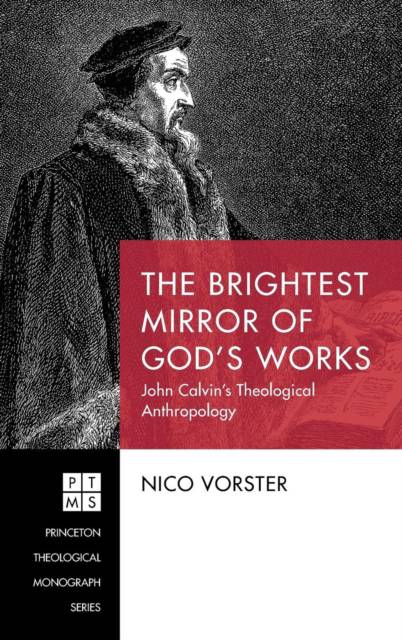
- Afhalen na 1 uur in een winkel met voorraad
- Gratis thuislevering in België vanaf € 30
- Ruim aanbod met 7 miljoen producten
- Afhalen na 1 uur in een winkel met voorraad
- Gratis thuislevering in België vanaf € 30
- Ruim aanbod met 7 miljoen producten
Zoeken
€ 67,95
+ 135 punten
Uitvoering
Omschrijving
John Calvin's perspectives on the nature, calling, and destiny of the human being is scattered all over his extensive corpus of writings. This book attempts to provide an accurate account of the main theological motifs that governed Calvin's doctrine on the human being, while keeping in mind variable factors such as the historical development of Calvin's thought, the pastoral and often unsystematic orientation of his theology, and the formative impact doctrinal controversies had on his thoughts. The contribution focuses specifically on Calvin's understanding of the created structure of the human being, her sinful nature, the human being's union with Christ, the limits of human reason, the anthropological roots of human society and gender. The primary aim is to make the original Calvin speak. But the contribution also addresses some of the most recent debates on Calvin's theology and identifies those impulses in his theological anthropology that bear potential for modern reflections on human existence. Like most of us, Calvin was a child of his time. However, his intellectual legacy endures and readers may well find his thoughts on the human being surprisingly refreshing and stimulating for modern anthropological and social discourses.
Specificaties
Betrokkenen
- Auteur(s):
- Uitgeverij:
Inhoud
- Aantal bladzijden:
- 198
- Taal:
- Engels
- Reeks:
- Reeksnummer:
- nr. 236
Eigenschappen
- Productcode (EAN):
- 9781532660252
- Verschijningsdatum:
- 28/03/2019
- Uitvoering:
- Hardcover
- Formaat:
- Genaaid
- Afmetingen:
- 152 mm x 229 mm
- Gewicht:
- 435 g

Alleen bij Standaard Boekhandel
+ 135 punten op je klantenkaart van Standaard Boekhandel
Beoordelingen
We publiceren alleen reviews die voldoen aan de voorwaarden voor reviews. Bekijk onze voorwaarden voor reviews.











